|
«I always enjoyed the power that music brings to certain scenes of a film» Hello Walter. Thank you for granting this interview. First, I wanted to ask how did your interest in film music begin, it must have been very early because you kind of focused your studies in film music.
I always enjoyed the power that music brings to certain scenes of a film. But it was when I got my first synthesizer at the age of 16 that I wanted to fully dive into this world of film scoring. The first experiments were rather ‘simple’ but very rewarding. I tried to get as much advice from more experienced composers and explored new techniques with learning by doing. To broaden my horizon and enrich my sound palette I decided to study music composition for motion picture. You are a very versatile composer, working for the video game world, as well as for film, television and documentaries. Do you think any composer can create music for any of these areas or a specific training prior to dealing successfully with these different areas is needed? I think for most visual media, whether it is film, television or video games, the initial process is quite similar. We start discussing the overall sound for each project with the creatives/director/producer. This can be a spotting session for a film or an early play through with the game director. Most of the time the film is either being shot or is still in postproduction and there is only a script which gives me an idea of who the protagonists are, similar to a video game when there is hardly any visual content and you make assumptions based on an early script.
Cut scenes in a video game are the equivalent to a regular scene in a movie and have a very linear structure. The main difference lies with the nature of a video game’s ‘freedom of movement’. It is difficult to predict how long the player will sneak up on enemies and how long it will take him to subdue the bad guys. This is where game music becomes more tricky and uses today’s advanced technologies to stream multiple stems of music which can be played back and cross-faded at any given point without the player noticing. Depending on the complexity of a game this can take up a lot of time and resources until a composer uses the full potential of what’s technically possible. Let’s focus on your two most important works in 2015. Let’s talk about Blood Orange, how did you get involved in the project?
I met the director before he started shooting the film and he asked me if I wanted to score his movie, a thriller set in Ibiza/Spain. At that time it was unclear if Iggy Pop would star in the film. I came up with some musical sketches which I tweaked and enhanced as soon as I saw Iggy’s stellar performance. What would you highlight over any other element in Blood Orange? What was your main motivation in carrying out this project?
Blood Orange has a very raw and honest sound; it is all about recording real instruments and capturing true emotions. This really drew me into this project. It is also a movie that allows melodies for our main characters. So instead of creating interesting sound sculptures I was asked to come up with themes. I remember one scene where Iggy is in tears, on his bathroom floor. We had a music review with director and producers who were going to hear the music for this particular scene for the first time. When the mellow and fragile melody played on a piano came in, it brought a tear to their eyes. We kept this track without any further changes and it became one of my favorite moments in the film. Tell us about your participation in the film Ronaldo. How did you get involved in the project?
The film’s music supervisor (Abi Leland) introduced me to the director. I didn’t know exactly what to expect from this film and prepared quite a few different tracks for our first meeting with Anthony Wonke (director) to show him my style of music. I was so relieved when I noticed how synched we were with music and the less ‘normal’ an instrument sounded, which I used to accompany the orchestra, the better. This resulted in a lush score from big orchestral cues to synth-heavy and trippy sequences. You recorded at Abbey Road Studios. Was it your first time there? How was the experience? I absolutely love Abbey Road Studios. Every score I have recorded there comes alive and develops even beyond what I had in mind. There are many factors that contribute to such positive outcomes, the actual room, engineer and mixing desk play a big role of course but then there are the brilliant musicians whose performances become even richer in such a grand environment. What were the goals you wanted to achieve with this score? What did you want to convey with your music?
Anthony asked me to never hold back and if in doubt to trust my instincts and push the music even further. This was so encouraging. I often found myself recording acoustic sounds and then tweaking them further and treating them with effects until the instrument/sound was perfect for the scene. Overall the music is a very organic blend of orchestral and electronic elements, with certain cues sounding quite electronic but when you listen closely you can hear the organic warmth and strings moving in the air. The piano was often used accompanied by a small string setup when the film goes back in time and shows Ronaldo from a young age. The first big cue in the film is the total opposite. It needed to have a diverse sound palette ranging from small strings with twisted textures to express Ronaldo’s defeat to a full sized orchestral score with live recorded drums, guitars, bass, and multiple layers of synths. Since Ronaldo is a really well-known person, has your participation in this film positively affected your career or contributed to your popularity? Even though I knew about Ronaldo’s fame and expected some interaction with his fans, nothing could prepare me for the sheer amount of emails and Facebook messages I received the day after the premiere. Some were written in Portuguese (I hope they meant something nice!) but most were in English. This film certainly helped to establish me in the world of high-end feature documentaries. Can you tell us about your upcoming projects? I’m currently working on a horror movie which will premiere at the SXSW festival and then off to an amazing Sci-Fi movie with a well-established director for which I will be spending a lot of time in Los Angeles. And there is a very interesting television series I’ve been approached for which is set in the Cold War. 2016 couldn’t get more diverse from a musical point of view. Thanks for your time. Regards. My pleasure! |
Author
BIO: His latest projects include Universal’s documentary feature, Ronaldo, from the producers of Amy and Senna and directed by BAFTA winning director Anthony Wonke; Toby Tobias’ thriller Blood Orange starring Ben Lamb and Iggy Pop; and edgy television drama series such as BBC 1’s Cuffs from the producers of Ripper Street and E4’s teen drama mini-series Glue written by Jack Thorne (Skins) and directed by Daniel Nettheim (Doctor Who, The Hunter). His music can also be heard in Rockstar’s Grand Theft Auto video games, Sony’s sci-fifranchise Killzone, Tom Clancy’s Splinter Cell: Conviction and The Creative Assembly’s Total War series. Studying in his native Austria, Mair graduated in music composition for orchestra at Vienna University with a major in music composition for motion pictures from Salzburg University. His diverse repertoire ranges from epic full orchestral scores recorded with 80-piece choirs to intimate, small ensembles and hybrid electronic scores featuring an eclectic mix of live recorded solo instruments and found sounds. To create unique sounds for each score, Mair employs his extensive collection of analog digital synths and effect processors, blending live orchestral arrangements with experimental post-recording techniques. Mair maintains a personal state-of-the-art recording studio in Soho, London, the heart of Europe’s post-production community, recording with A-list orchestras at major studios including Abbey Road Studios and Air Studios, and works with filmmakers in Los Angeles and commercial clients worldwide. Mair is a member of the British Academy of Film and Television Arts (BAFTA) and British Academy of Songwriters, Composers and Authors (BASCA). Website |


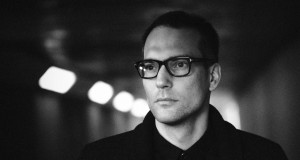
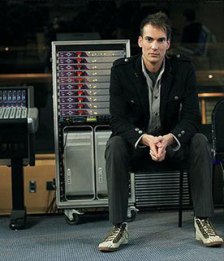
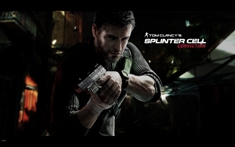
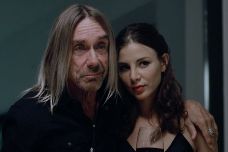
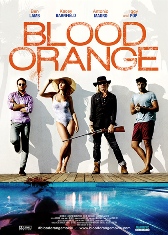
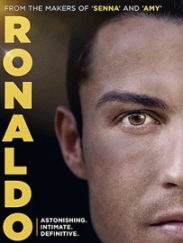


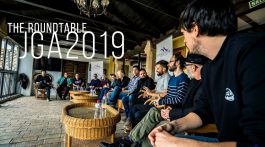
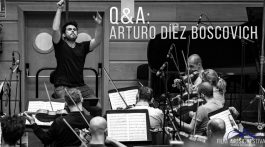
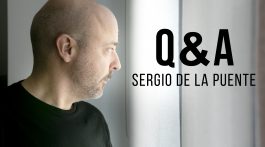
No hay comentarios